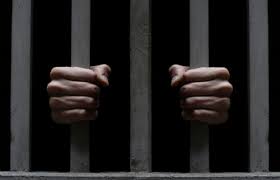PRISONERS IN INDIA AND THEIR RIGHTS
The Constitution of India has given every citizen rights and duties equally. It has kept humanity on mind and made laws accordingly. Even the non-social elements of the society who are seen to cause issues in the society are also protected by these laws and given certain rights for their safeguard. Even the Supreme Court has remarked that regardless of the crime that has been committed by an individual, his human rights and dignity needs to be protected. As per the Model Prison Manual 2016 a prisoner is defined as a person under the authority of a competent body. Which simply means, a prisoner is a person held in jail or prison because they have committed an act prohibited by the law of the country. In India, the term “prison” and “jail” are used interchangeably and both convicted individuals and those awaiting trial are referred to as prisoners. Let us discuss the rights of prisoners as given in the Prisons Act, 1894.
2/25/20243 min read


1. Right to Adequate Accommodation (Section 4)
Even though a prisoner is a person who is guilty of committing a crime that does not make him/her inhuman. Thus, the conditions where a person is kept after being arrested plays a major role. The prisons act highlights on the point that a person after being arrested is required to be kept in prison and the prison should uphold human dignity, they should have proper accommodation, hygiene, sanitation, food, clothing and medical facilities.
2. Right to Shelter and Safe Custody for Excess Prisoners (Section 7)
As per the growing rate of crime in the country, the number of prisoners have outgrown the number of prison available.
In such a situation, there is no excuse of keeping the prisoners together in one prison exceeding its capacity. It is required that an alternate temporary provision is made for accommodating the prisoners safely in adequate conditions. This needs arises as prisoners are a hub for spreading various diseases.
3. Examination of Prisoners by Qualified Medical Officers (Section 24 and 26)
Prisons are required to provide proper medical assistance to the prisoners. Qualified Medical officer should examine the prisoner and their health status is required to be kept recorded by the jailer.
The female prisoners are to be examined by a lady matron.
Once a prisoner is detected of any illness, he cannot be transferred back to his original prison unless fit certificate is given by the medical officer.
A medical officer can only discharge a prisoner from the prison only if he deems it to be safe.
4. Separation of Prisoners (Section 27)
Male and female prisoners are required to be kept separately and thus prison authorities are required to make arrangement for the same.
In the same manner prisoners below the age of 21 years are kept separated from the prisoners who are above 21 years and have reached their puberty
The undertrial prisoners should be kept separated from the convicted prisoners.
Also civil and criminal prisoners should be separated.
5. Maintenance of Prisoners from Private Sources (Section 31)
Civil and Undertrial prisoners have the liberty to purchase food, clothing and other necessities from private sources in the given time period subject to examination and rules approved by the Inspector General.
6. Solitary Confinement (Section 29)
Any person who has been given Solitary Confinement is required to be visited by the Medical officer or Medical subordinate at once in a day if a prisoner is kept in Solitary Confinement for more than 24 hours.
Also prisoner in a Solitary Confinement should be able to communicate with the prison officer, such provisions need to be made.
7. Supply of Clothing and Bedding to Civil Prisoners and Undertrials (Section 33(1))
The superintendent is to provide sufficient clothing and bedding to every civil and under trial prisoner who is unable to arrange the same for themselves.
8. Employment of Criminal Prisoners (Section 35)
Prisoners sentenced to rigorous imprisonment are supposed to engage in manual work for more than nine hours with written approval from the Superintendent.
The medical officer is required to make sure that a prisoner who is assigned any work in the prison is fit for the same, in cases where a prisoner is found to fall ill frequently due to work is required to be transferred to another suitable job.
9. Care for Ill Prisoners (Section 37)
Any prisoner who is seen to show symptoms of physical or mental health issues is required to consult Medical Subordinate after he has reported about his health to the jailer or the jailer has noticed his health issue.
Once consulted by the Medical Subordinate, the jailer is required to follow the written instructions provided by the Medical subordinate concerning changes in the discipline or treatment of such prisoners.
10. Provision of Hospitals (Section 39)
Each Prison should have a hospital or an appropriate facility for the care of sick prisoners.
11. Visits for Civil and Undertrial Prisoners (Section 40)
Civil and Undertial Prisoners have the right to meet with individuals they wish to communicate when in prison, as per the time assigned and under reasonable conditions.
Undertrial prisoners are allowed to meet their legal advisors alone in the interest of justice.
